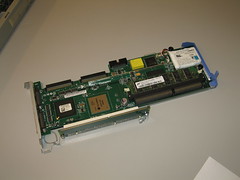Editor in Chief of ZDNet and SmartPlanet as well as Editorial Director of ZDNet's sister site TechRepublic.
 Canonical’s Mark Shuttleworth on Monday detailed how Ubuntu will split from the GNOME user interface for Unity, which is its netbook approach. Simply put, Ubuntu will have a custom user interface.
Canonical’s Mark Shuttleworth on Monday detailed how Ubuntu will split from the GNOME user interface for Unity, which is its netbook approach. Simply put, Ubuntu will have a custom user interface.
The reaction to various press reports from Computerworld, Ars Technica and others has gone to extremes:
- First, Canonical could be portrayed as evil because it’s flipping its middle finger to the open source community.
- Others say that GNOME was hard to work with.
- And then you get your Unity sniping.
Don’t expect much unity in the open source community over Ubuntu’s very significant change.
The reality: If Ubuntu really wants to be a player on the desktop it will have to have more control over its user interface. Meanwhile, it makes no sense to have a UI for netbooks and PCs. In fact, the UI is everything. And as Apple has shown you can’t really do interface by committee.
Now Shuttleworth acknowledged Ubuntu has a lot of work to do. Ubuntu OS needs to rethink everything from windows management to what the interface should look like. Ubuntu’s decision to go to a UI over GNOME (GNU Network Object Modeling Environment) is risky. However, if you can take a shot at broader adoption you do it. The Ubuntu interface (right) isn’t going to get the masses excited.
In other words, this split from GNOME looks like a solid decision to me. Dell is selling Ubuntu laptops and if Ubuntu wants other PC makers to follow it needs a hot interface. Let’s face it: If the best thing Ubuntu can do is mimic the interface of Windows it will never get beyond the enthusiasts. Show us something innovative via the Unity pragmatism and maybe you’ll sway others to Ubuntu.














